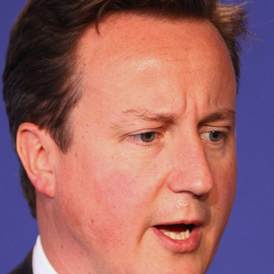David Cameron outlines changes to NHS reforms
As the Prime Minister makes a major speech on changes to NHS reforms, the BMA says it’s a significant step in the right direction but that doubts remain about the use of competition in the NHS.
David Cameron set out the first significant changes to the Government’s controversial NHS reforms as he admitted ministers had “learnt a lot” in recent weeks.
Following the two-month “pause” in the Health and Social Care Bill to enable further consultation on the proposals, the Prime Minister said there had been growing support for “the thrust of what we are proposing”.
Labour responded that Mr Cameron had already failed to protect NHS spending, resulting in “chaos, confusion and damage to patient care”.
In a speech to NHS staff in London, the Prime Minister admitted there were aspects of the reforms that needed to change.
He said hospital doctors and nurses – not just GPs – would now be involved in commissioning. He said “clinical senates” would bring together healthcare professionals to oversee the integration of care over wide areas and that the health regulator Monitor would have a duty to promote integration.

Acknowledging widespread concerns about the Health and Social Care Bill, Mr Cameron promised there would be no “selling off” of the NHS, that waiting times would be kept under control and that competition would only be used as a means of improving services.
Chair of the British Medical Association (BMA), Dr Hamish Meldrum, described the speech as “indication of a significant step in the right direction”.
But he said there were still concerns: “The Prime Minister’s speech suggests he is committed to integrated NHS services, and the involvement of a wider range of staff in their design.
“However, he also spoke in glowing terms about the benefits of competition, and we would point to the many damaging effects its application in the NHS has had so far.”
Channel 4 News Political Editor Gary Gibbon asks what the NHS reforms will cost the Coalition?
"Most of the Lansley proposals could've been achieved without legislation, former Health Secretary Stephen Dorrell has suggested.
"But the fanfares, pace and proclamations created a mighty storm and have cost the Coalition dear in negative publicity. Have their concessions harmed their project?"
Read more: NHS reforms - can the Coalition achieve what it wants?
David Cameron also promised to increase spending on the NHS in real terms, year after year.
The PM denied the reforms were about cuts: “We’re not cutting the NHS – in fact we’re spending more on the NHS.”
But he added: “Every year without reforms costs will increase… We can’t pretend the extra money we’re putting in will meet the extra challenges.”
‘Most agree change is needed’
The Prime Minister said there had been an “important debate” over the past two months which had led to “a whole range of people” changing their views.
“Before the pause, many were claiming the NHS is fine and telling us not to touch it,” he said.
“Now, whatever their views about how to do it, most agree that change is needed.
“What’s more, a significant number are now more clearly on board with the thrust of what we are proposing.”
He added that the Government had “learnt a lot about how to make our plans better”.
“Now, of course, some people ask why didn’t we get everything right at the beginning? I don’t see any point in being too defensive on this.
“I know other governments would announce reforms and just plough on regardless of the concerns people had, for fear of appearing indecisive or worrying about admitting something could be improved.
“And I know that the media with their deadlines want everything fixed in 24 hours. But this is too important to get wrong. So I think it is right that we took some time.”
